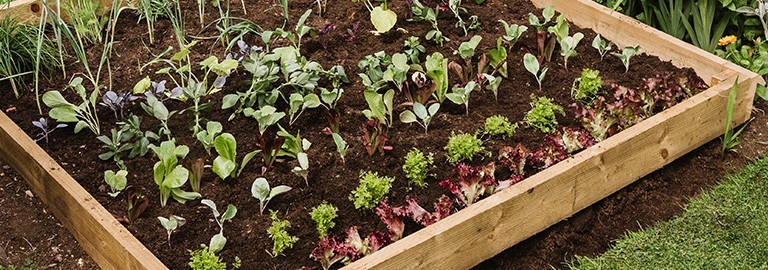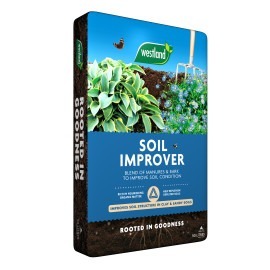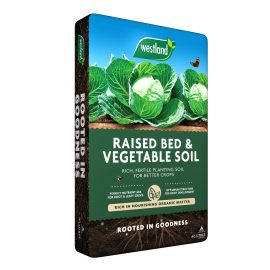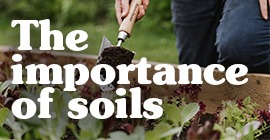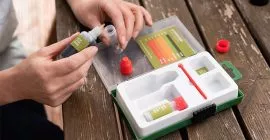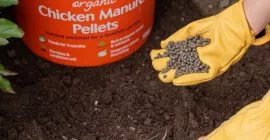Westland soils have been created for optimal plant health. Many people think ‘surely, the soil that’s already in my garden will do’. The truth is, Westland soils are as alive as your plants, bustling and thriving with organic life. When choosing a soil, ensure it is from Westland and the organic life found in our soils will nourish your plants and create the foundation for a successful garden.
What makes our Westland soils so successful?
Great soil consists of three key factors that must work together: physical structure, chemical balance and biological community. Additionally, the physical structure must include a core composition of sand, silt, and clay for free draining and improved aeration. Plus, the chemical factor must have the correct level of organic matter and a balanced pH for soil to function. Finally, the increase of biological matter results in improved soil fertility to promote stronger crops, larger yields and healthier plants.
Westland soils are rooted in goodness, giving your plants, lawn and raised beds access to good, healthy, fertile soil.
Our soils work naturally in 3 ways to ensure the best foundations for your plants to grow…
1. SUPER STRUCTURE
PERFECT BLEND OF SAND, SILT, CLAY & ORGANIC MATTER
For an open, free draining soil that holds just the right amount of moisture and oxygen for plant roots to grow strong.
2. ESSENTIAL NUTRITION
IDEAL BALANCE OF ORGANIC MATTER & pH
Rich in organic matter, providing nutrients for your plants to thrive, with an optimum pH for excellent nutrient availability. Grow bigger better vegetables, flowers and foliage.
3. ACTIVE BIODIVERSITY
BOOST NATURAL BIOLOGY & PRODUCTIVITY
Supporting organic life in the soil that work 24/7 to release the nutrients that plants need. Improving soil fertility, because healthy plants need healthy soil to thrive.
Why choose Westland soil over compost?

Soil is a naturally occurring growing medium and normally contains weathered rock in the form of sand, silt and clay with varying amounts of organic matter. Westland planting soils are a blend of grit, sand, silt clay and organic matter which has important benefits when blended to create a direct growing medium.
One advantage of Westland soil is increased stability, which makes pots heavier and less likely to blow over. Plus, it makes the growing medium easier to re-wet if it dries out. Finally, it increases the growing medium’s ability to hold on to nutrients as some clay content is needed for this.
Take a look at our handy table below to work out which growing medium is right for you:
| Compost | Soil |
|
– Used for pots, containers, beds and borders – Ideal for seed sowing – Good for water retention, but difficult to re-wet once dried – Great nutrient retention – Great rooting |
– Used for beds, borders, veg plots and raised beds – Not recommended for seed sowing – Best for water retention and re-wetting ability – Finest for stability and longevity – Best nutrient retention |

